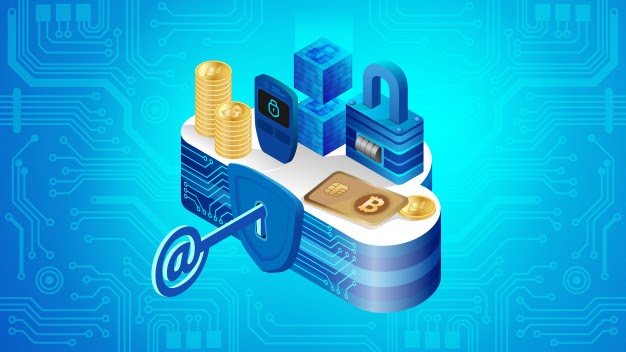Quick Answer:
Yes, BitPay appears to be safe. It has passed the SOC 2 security examination, stores most funds in secure cold storage, employs two-factor authentication for account protection, and offers a non-custodial wallet with additional security features. However, while these measures indicate strong security, users should always remain cautious in the cryptocurrency space.
Finding ways to stay on top of the challenges that exist in the crypto industry – both in terms of regulations, market volatility, and cybersecurity – is far from an easy task. A lot of crypto exchanges and buying outlets for crypto assets are struggling to provide a quality user experience.
The first step is including mandatory KYC registration checks that require customers to provide basic personal information and government-issued IDs to become verified members. Most exchanges employ the 2FA and withdrawal whitelisting to enhance account security. There are also platforms that go the extra mile to create additional lock settings.
These differences help traders make their choice and settle on an exchange that suits their needs and priorities. However, to get there, traders need to familiarize themselves with different platforms and their security measures which is why we offer these exchange reviews for our readers.
Today, our exchange in focus is BitPay, a reliable Bitcoin payment service.

What’s BitPay?
BitPay was co-founded in 2011 by Tony Gallippi and Stephen Pair in Orlando, Florida. Today, the platform is the largest Bitcoin payment processor in the world and operates from its new location in Atlanta, Georgia.
BitPay used to support only Bitcoin (hence the name) but has added support for Bitcoin Cash (Bitcoin’s forked version) and Ethereum (the second largest cryptocurrency).
The payment processor allows customers to use BitPay during checkout to make online purchases with BTC. The customers pay the invoice to BitPay which then converts the BTC into one of the few supported fiat currencies and deposits the funds to the merchant’s bank account.
The advantage of paying with BitPay is that you don’t have to spend extra money on high processing fees as is the case when you’re using credit cards. Cards incur up to 3% service fees as opposed to BitPay’s 1% flat rate. Moreover, users are exempt from volatility risks once they make their purchase.
The best thing about BitPay, however, is the BitPay Visa Card that allows users to pay with BTC as easy as paying with fiat currencies via regular credit/debit card. Instead of being limited to making online payments only, now customers can do it in person too. Plus, they get the option to withdraw cash from ATMs as well.

Platform Security
An important milestone for BitPay was the successful Service Organization Control 2 or SOC 2 examination that the exchange completed in 2019. The examination or surveillance focuses on security and confidentiality compliance and was awarded to BitPay by business advisory company Aprio.
This is an important achievement because it means that the exchange has fully met the criteria set by the American Institute of Certified Public Accountants in relation to the level of not only security and confidentiality of user data but also privacy, integrity, responsiveness, and availability.
BitPay stores more than 98% of customer funds in cold storage which makes it harder for hackers to gain access as they usually attack exchanges’ hot wallets that are connected to the Internet.

Account Security
Two-Factor Authentication
The two-factor authentication method or 2FA for short is the most popular security feature for all sorts of online platforms, from exchanges to online banking apps. Instead of simply using a strong password that you’ve probably used to register with many other online services, the 2FA adds another layer of protection to your account.
Every time you log in after you enter the password, you’ll be asked to insert the second factor, i.e. either a verification code sent via SMS to your mobile phone or a 6-digit code generated on a special authentication app.
BitPay suggests using Google Authenticator for these one-time passcodes whose validity lasts for no more than 60 seconds. With this app, you can also back up your two-factor authentication codes in the “Auth Token” section. You’ll get a list of single-use backup codes that can be used in case you lose access to your Google Authenticator or have your phone stolen.

BitPay Wallet
BitPay offers its users a digital wallet to store their cryptocurrencies before deciding what to spend them on. The BitPay wallet stands out from other cryptocurrency wallets because it’s a non-custodial “light” wallet.
Light wallets are different from custodial centralized wallets because the user owns his/her private keys. The wallet stores no personal data. Instead, the user receives a file with the keys that he/she needs to store on the browser, computer, or a third-party hardware device for the best protection.
But that’s not all! The BitPay wallet has additional security features such as multi-signature security if you’re using the wallet with a couple of trusted co-payers. This means that before your wallet authorizes a withdrawal order, for example, it will not only need one, i.e. your signature but your co-payers’ too.
Next, you get to enjoy private key encryption, two-factor authentication, and biometrics setup. On top of that, BitPay applies the Bitcoin Payment Protocol (BIP), a technology that helps the system reduce payment errors and invoices and protects against man-in-the-middle attacks.

Conclusion
Overall, we can conclude that BitPay is quite a reliable platform if your target currencies are Bitcoin, Bitcoin Cash, or Ethereum. It gives users a very convenient way to spend their coins online or in stores using the BitPay card.
Moreover, you get a secure non-custodial wallet with multiple signatures. Both the wallet and the account itself can be protected with two-factor authentication. The only thing that’s missing is a withdrawal address whitelist of some kind.

